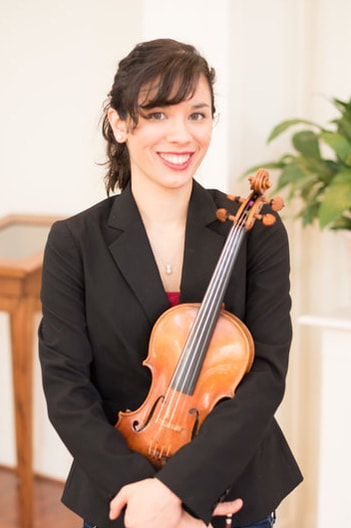“Yes, it is.”
“Oh, that’s so cool! Are you still in school?”
“No, I’m a professional musician.”
“Can you actually make a living doing that?”
“Yes. I play in a professional string quartet, a professional orchestra, and I teach.”
“Oh, you teach…” [sigh of disappointment]
The above conversation is typical of many that I’ve had with strangers, simply because I happen to have my violin with me. Now, I love violin. I love what I do. And I love to talk (and, obviously, write) about it. But, I’m not always in a mood to discuss work, or whether or not I’m making a living if I’m, say, in the grocery store, or at a train station, or walking down the street.
I know that many people aren’t used to talking to musicians, so I try to be kind - I know that most people really do mean well and are genuinely curious, though perhaps they don't go about it in the best way. Despite how well-meaning someone is, as a friend of mine says, "Communication is the message received."
I offer, therefore, some suggestions and guidelines for talking to that person you see with an instrument case.
1. It is never okay to talk to someone - especially someone you have just met, or who you don’t know well - about how much money they make. It’s also not okay to make assumptions about how much they make based on the age they appear, how they’re dressing, or if they have an instrument case. So, don’t. Don’t ask them if they’re making a living. Don’t ask them how they make money. Don’t ask them IF they make money. (If you’re genuinely concerned and want to help this person, see my tips for how to financially support musicians in Part 1).
2. Here are some good questions you can ask to learn more about a musician to start a good conversation (that doesn't even obliquely reference how they make money).
- What kind of music do you play?
- Are you working on any cool projects right now?
- What kind of music do you like to listen to?
- What’s your favorite performance you’ve ever done?
- How can I learn more about what you do?
3. Please don’t be disappointed or assume that we’re not good musicians/performers if we tell you that we teach. First, just about every musician teaches in some capacity. We love what we do and believe it has an amazing effect on our world - and we want to pass that on to the next generation! Second, it can be harder to teach Twinkle, Twinkle, Little Star to a class of four-year-olds than to play the Brahms Violin Concerto. Trust me, I’ve done both.
4. If we ask you questions about you, please tell us about you and your life/work! At least for me, I love hearing how people live their lives, and having a two-way conversation makes me feel like we’re doing just that - having a conversation. Sometimes, when people ask me rapid fire questions about what I do and if I make money at it, I feel like I’m at a job interview, or like people are more interested in me as That Different Freakish Musician, not a human being like they are.
Thanks for reading this! I hope some of my ideas were helpful, and I hope you’ll find ways to support the arts in whatever ways seem right for you.

 RSS Feed
RSS Feed